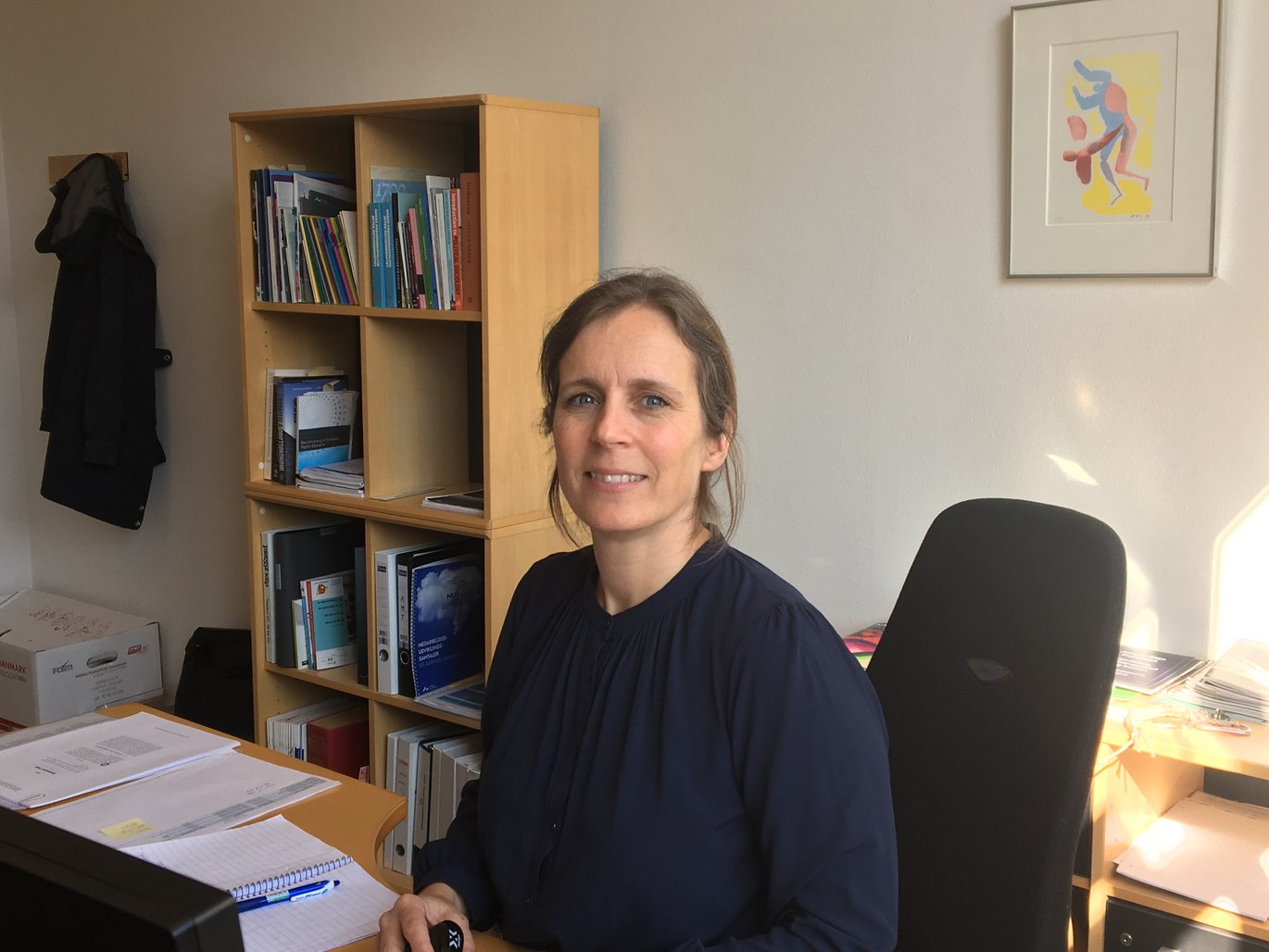Meet your colleague: Head of Secretariat Lene Hjøllund
In building 1331 in the middle of the University Park, we find Lene Hjøllund’s office. Since 2016, she has been head of secretariat at the Department of Political Science after many years at Aarhus University. We talked to her about her working day and about what it actually means to be the head of secretariat.

We meet Lene Hjøllund in her office on a cool April day, and before we sit down, we get coffee in the department cafeteria. Here, you can clearly sense that Political Science is a department buzzing with activity. Back in the office, we take a seat.
Lene, can you tell us a bit about your everyday life and about what a head of secretariat actually does?
I sure can. As I see it, I actually have two main functions. First of all, I’m the head of the administrative staff and responsible for coordinating tasks, employing new staff, etc. I’m also responsible for the department’s collaboration with the administrative centre.
Second of all, I act as a sounding board for the head of department in all kinds of questions - naturally mainly in connection with administrative matters. We discuss a lot of things on an ongoing basis and meet up regularly - and write a lot of emails to each other!
What do you like about your job?
As head of secretariat, I’m involved in all administrative areas; finance, study administration, etc. I really enjoy working in so many different fields and it also gives me a great deal of insight. There’s always something new to learn.
I’ve been employed at AU since 2002 and have held various positions - in the Dean’s Office at the former Faculty of Social Sciences and later on at Aarhus BSS and at the former Department of Economics. My experiences have taught me a lot about how everything works in an organisation such as Aarhus BSS - and I can apply this knowledge in my everyday work.
Today, I am part of the Department of Political Science and I really enjoy being close to what its all about - research and teaching. It’s also just a really great place to work with a good atmosphere.
You were part of the The Faculty of Social Sciences during the merger in 2011. What was your impression of the merger from an administrative perspective?
Naturally, the merger was a great change - not just in terms of research, but also administratively. All of a sudden, two cultures and several ways of doing things had to interact. A lot of preparatory work and a thorough analysis had been carried out before the merger, but many differences didn’t emerge until after the merger in everyday situations that were impossible to predict.
Today, I think we have a great collaboration - with the administrative centre and across the departments. Among other things, the heads of secretariats and administrative division managers regularly meet up. Here we keep each other up-to-date with what’s going on in our departments and specific areas. This is important - also in terms of creating a shared sense of direction. You have to remember that we’re a huge school that is actually the same size as Aarhus University before the merger. That’s a bit mind-blowing, actually.
When I started, we were around 100 administrative academic employees (AC employees) at AU in total. We had an association called AC-Klubben, we all knew each other and held a joint Christmas party. Today, we are scattered all over the place and there are a lot more of us.
What do you think about Aarhus BSS as a construction?
I actually think it makes a lot of sense. Although the school was founded on two cultures and two identities, we actually have a lot in common - for example in comparison to departments at the Faculty of Science and Technology. As departments, we face the same challenges, we offer the same types of degree programmes and we operate under the same conditions. Does this mean that we should all think and act the same? No, of course not. In fact, that’s one of the things that makes our school such an interesting place to work - this very balance between community and diversity.
Today we also see more and more collaborations across the school in relation to both research and degree programmes. For example, we share the Public Policy programme with the Department of Economics and Business Economics, and many of our researchers collaborate with researchers from other departments. In my opinion, it’s best when collaborations are initiated from the bottom-up and when the desire to work together across disciplines develops from within.
We’ve talked a lot about the professional Lene. Can you tell us a bit about Lene in private?
I’m married and have two fantastic teenage children. I don’t have a specific hobby, but we spend a lot of time doing up our house from 1961 - I guess you could almost call that a hobby. I’m very interested in architecture and I enjoy travelling. When I need to unwind, I go for long walks in the hills around Himmelbjerget or work in the garden.